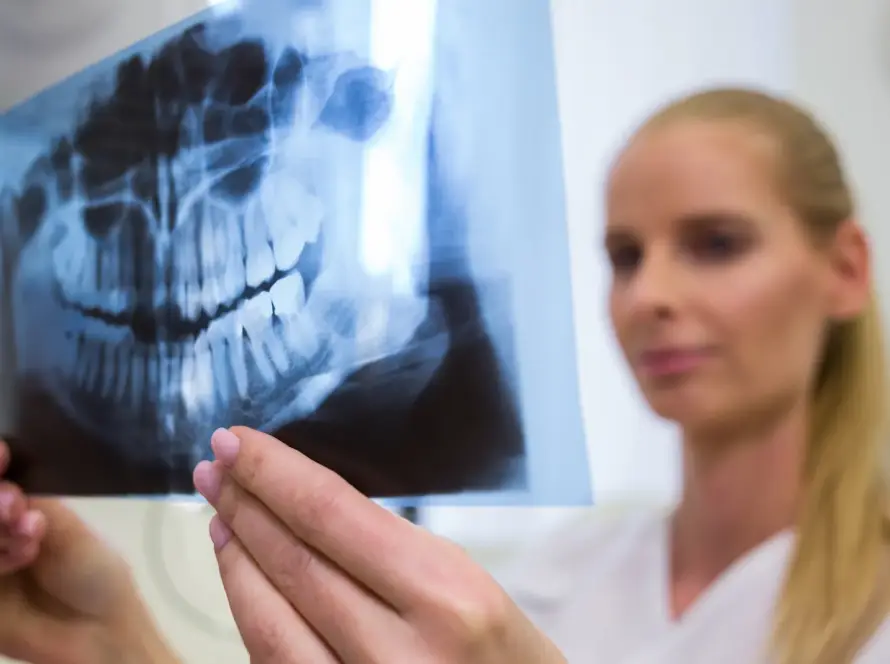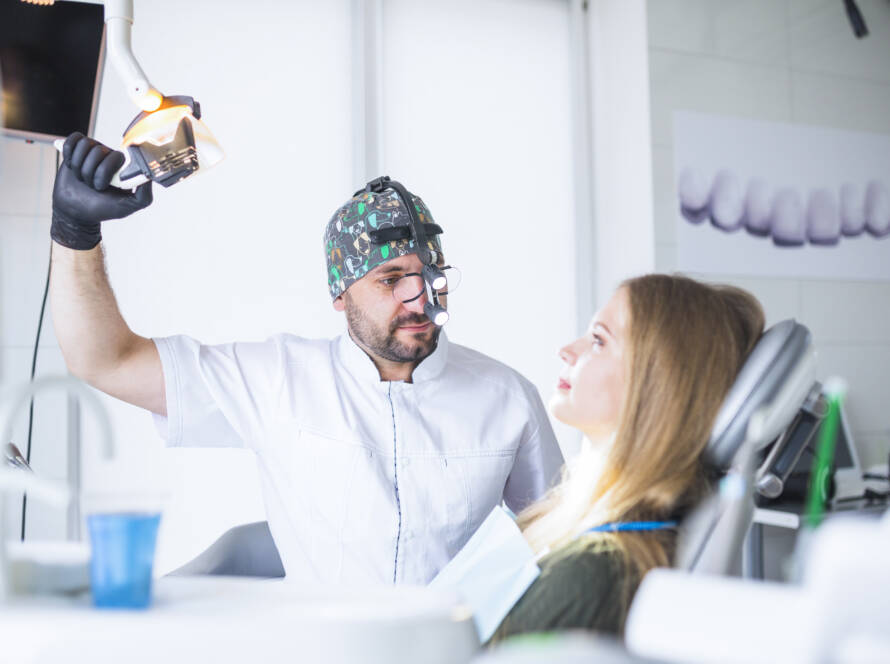Turkey teeth, a colloquial term, refer to a trend where individuals travel to Turkey to undergo dental procedures. This phenomenon has gained widespread attention due to a combination of high-quality dental services and comparatively lower costs. Prominent among these procedures are dental veneers, crowns, and implants. The term has become synonymous with the dental tourism industry that flourishes in Turkey.
Key Features of Turkey Teeth
- Affordable Costs: The primary driving factor is the cost-effectiveness of dental treatments in Turkey. Dental services in Turkey can be significantly cheaper than in Western countries, allowing patients to save considerable amounts of money.
- Advanced Technology: Turkish dental clinics are equipped with state-of-the-art technology and utilize modern medical techniques. This ensures that patients receive top-notch care and the latest in dental health innovations.
- Highly Qualified Dentists: Many Turkish dentists have received education and training from renowned institutions around the world. Their expertise and experience ensure high standards of treatment and patient care.
- Comprehensive Care Packages: Many clinics offer all-inclusive care packages, which often include accommodation, transportation, and sometimes even sightseeing tours. This holistic approach enhances the overall experience for dental tourists.
- Quick Turnaround Times: Procedures in Turkey are often completed in a short time frame, which is appealing to international patients who may have limited time for travel and treatment.
Popular Procedures
- Dental Veneers: Thin shells designed to cover the front surface of teeth, improving their appearance. They are custom-made and can address issues such as discoloration, chips, or gaps between teeth.
- Dental Crowns: Caps placed over damaged teeth to restore their shape, size, and function. Made from various materials like porcelain, metal, or a combination thereof, they provide both durability and aesthetics.
- Dental Implants: A long-term solution for missing teeth, involving a titanium post surgically placed into the jawbone, onto which an artificial tooth is mounted. This provides a realistic and functional replacement tooth.
Considerations for Patients
- Research: Prospective patients should thoroughly research potential clinics and dentists, considering reviews, qualifications, and past patient experiences.
- Consultations: Many clinics offer online consultations, allowing patients to discuss their dental issues and treatment plans before traveling.
- Post-Treatment Care: It is essential to understand the post-treatment care requirements and ensure access to follow-up care if needed.
With these elements in place, the allure of Turkey teeth becomes clearer, making it a popular choice for those seeking both dental care and an opportunity to explore a new country.
Historical Background and Origin
The concept of dental modifications for aesthetic purposes dates back to ancient civilizations. The desire to enhance one’s appearance through dental alterations has been documented in several cultures.
- Ancient Egypt: Egyptians were among the first to practice dental modifications. They used gold wires to bind teeth that were loose or had gaps, which is considered an early form of cosmetic dentistry.
- Pre-Columbian Civilizations: The Mayans and Aztecs performed tooth filing and inlay procedures. They inserted jade and other precious stones into their teeth as a sign of status and beauty.
- Modern Cosmetic Dentistry: The modern advent of cosmetic dentistry began in the early 20th century. Innovations included dental veneers, crowns, and other restorative techniques.
Turkey teeth specifically refer to the trend of traveling to Turkey for dental procedures, notably for affordable, high-quality cosmetic dentistry.
- Medical Tourism: Over the last few decades, Turkey has become a preferred destination for medical tourists seeking dental care. This trend is largely due to the country’s investment in healthcare infrastructure, advanced technology, and a significant number of highly qualified dental practitioners.
- Economic Factors: Turkey’s healthcare services are often more affordable than those in Western Europe and the United States. This cost-effectiveness, combined with appealing vacation packages, makes it an attractive option for people seeking comprehensive dental treatment.
- Social Media Influence: In recent years, social media has played a substantial role in popularizing Turkey teeth. Influencers and celebrities showcasing their dental transformations have driven public interest in this option.
Historical landmarks in dentistry and current trends illustrate the progressive evolution of dental aesthetics. The rise of Turkey as a hub for high-quality, economical dental care encapsulates a time-honored tradition of seeking improved oral aesthetics, intertwined with contemporary travel and economic factors.
Why the Term ‘Turkey Teeth’?
The term “Turkey Teeth” has garnered popularity predominantly as a descriptor for a specific type of dental procedure that people undergo in Turkey. Turkey has become a renowned destination for dental tourism, known for its high-quality yet affordable dental services. The procedures often associated with this term include a variety of cosmetic dental treatments, particularly those that involve the reshaping, crowning, or veneering of teeth to achieve a perfect smile.
Key Reasons Behind the Term:
- Geographic Origin: The term “Turkey Teeth” stems from the country where these dental procedures are most frequently sought after. Turkey has built a strong reputation in the cosmetic dentistry industry due to its advanced technology, skilled practitioners, and cost-effective treatments.
- Aesthetic Focus: The procedures termed “Turkey Teeth” are usually linked with significant aesthetic enhancements. This includes:
- Veneers: Thin shells placed over the front surface of teeth to improve appearance.
- Crowns: Restorative caps that cover damaged or decayed teeth entirely.
- Whitening Treatments: Procedures to lighten the shading of teeth.
- Orthodontic Work: Braces and aligners to straighten teeth.
- Popular Culture and Media: Social media platforms and influencers have played a crucial role in popularizing the term. Celebrities and social media influencers often travel to Turkey for these dental transformations, documenting their experiences and results. Consequently, the term has gained traction as part of mainstream conversation regarding dental aesthetics.
- Economic Factors: Dental work in Turkey is notably less expensive compared to many Western countries. This economic advantage drives individuals from various parts of the world to seek treatment there, making it a hot spot for dental tourism and contributing to the widespread use of the term.
- Perceived Quality: Despite the lower costs, the quality of dental services in Turkey is perceived to be high. Clinics in Turkey often combine state-of-the-art facilities with experienced dental professionals, leading to satisfactory and sometimes superior results.
Understanding why the term “Turkey Teeth” has emerged involves recognizing the intersection of geographic, economic, and cultural elements. It reflects not only a trend in dental tourism but also the broader influence of globalization on healthcare choices.
Popularity Surge: Why Now?
The global cosmetic dentistry industry has witnessed a significant surge in interest towards “Turkey Teeth,” attributed to multiple factors. These myriad influences have collectively instigated this phenomenon, shaping it into a notable trend.
Cost-Effectiveness
One of the primary drivers is the considerable cost savings. Dental procedures in Turkey are significantly cheaper compared to those in Western Europe and North America. This affordability is due to:
- Lower operating costs in Turkey.
- Competitive pricing strategies by Turkish clinics.
- Favorable exchange rates.
High-Quality Services
Despite the lower prices, the quality of dental services in Turkey is maintained at high standards. This balance of cost and quality is compelling for many:
- Advanced medical facilities.
- Technologically equipped clinics.
- Experienced and internationally trained dentists.
Medical Tourism Incentives
Turkey’s government has heavily promoted medical tourism, offering incentives that enhance its attractiveness as a destination for dental care. These incentives include:
- Streamlined visa processes.
- Comprehensive travel packages including accommodation and transportation.
- Collaborations with international insurance providers.
Social Media Influence
The role of social media in proliferating the popularity of “Turkey Teeth” cannot be undermined. Influencers and celebrities play a pivotal role by:
- Showcasing their transformations.
- Endorsing specific clinics.
- Sharing personal positive experiences.
Word-of-Mouth and Reviews
Testimonials and peer recommendations amplify the attractiveness of getting dental work done in Turkey. User-generated content such as:
- Online reviews.
- Forum discussions.
- Before-and-after photos.
Accessibility and Convenience
Increased accessibility and convenience of international travel, alongside streamlined dental treatments, have also contributed to the interest. This includes:
- Direct flights to major Turkish cities.
- Short treatment durations.
- All-inclusive packages.
Cultural and Historical Appeal
Finally, the cultural and historical appeal of Turkey itself acts as an additional motivator. Visitors can combine dental procedures with enriching travel experiences, offering a dual purpose for their trips.
This confluence of factors has rapidly augmented the allure of “Turkey Teeth,” highlighting Turkey’s position as a leading destination for affordable and high-quality dental care.
Comparative Analysis with Other Cosmetic Procedures
Dental aesthetics encompass a variety of procedures, each with its distinct advantages and drawbacks. To understand the appeal of Turkey Teeth, it is essential to compare them with other popular cosmetic dental treatments.
Veneers
Veneers, often crafted from porcelain, are thin shells adhered to the front surface of teeth to enhance their appearance.
- Cost: The expense for veneers can be considerably high, typically ranging from $800 to $2,500 per tooth in the United States.
- Durability: Veneers usually last between 10 to 15 years with proper care.
- Procedure: The procedure involves minimal tooth reduction and is less invasive compared to full crowns.
Teeth Whitening
Teeth whitening, a non-invasive procedure, aims to lighten teeth by several shades.
- Cost: In-office treatments cost between $300 and $600 per session, whereas at-home kits are priced more affordably at about $100 to $400.
- Durability: Results generally last from six months to up to three years, depending on diet and oral hygiene.
- Procedure: Whitening involves the application of bleaching agents that break down stains. Discomfort may arise, but it is usually mild.
Dental Crowns
Dental crowns are caps placed over damaged or decayed teeth to restore shape, size, and functionality.
- Cost: The cost ranges from $500 to $3,000 per crown based on material and dentist’s expertise.
- Durability: Crowns have long durability, lasting between 10 to 15 years, potentially longer with impeccable care.
- Procedure: Crowns require considerable enamel reduction, making the procedure more invasive and necessitating multiple visits for completion.
Dental Implants
Dental implants replace missing teeth with artificial roots and prosthetic teeth.
- Cost: A single implant typically costs between $3,000 and $4,500.
- Durability: Implants can last a lifetime with excellent care and regular check-ups.
- Procedure: Involving surgical intervention, implants require a multi-stage process, including bone grafting in some cases. Healing can take several months.
Turkey Teeth
Turkey Teeth, often involving a combination of crowns and veneers, are cosmetic reconstructions widely sought after for significant transformation.
- Cost: Generally more affordable than equivalents in Western countries, running between $2,000 and $4,000 for a full set of teeth.
- Durability: Similar to that of veneers and crowns, typically enduring 10 to 15 years.
- Procedure: Comprehensive tooth reshaping, making it more invasive than most veneer applications.
By comparing costs, durability, and procedural details, it becomes clear why Turkey Teeth have garnered substantial attention. They present a blend of affordability and aesthetic enhancement, offering a transformative solution within a manageable budget.
Celebrity Influence and Media Portrayal
In analyzing the surge of popularity surrounding Turkey Teeth, one must consider the powerful role of celebrities and media portrayals. Celebrities with dazzling smiles often set beauty standards for the general populace. Different aspects of their influence can be broken down as follows:
Celebrity Endorsement
- Visibility: Celebrities frequently display their picture-perfect smiles on social platforms.
- Trust: Fans tend to trust and emulate their favorite celebrities, reinforcing the appeal of cosmetic dental procedures.
- Influence: High-profile endorsements from personalities can significantly drive public interest toward specific treatments like Turkey Teeth.
Social Media Impact
- Platforms: Sites like Instagram and TikTok provide a stage for celebrities to flaunt their pearly whites.
- Trends: Viral trends often originate with influencers, encouraging widespread adoption.
- Engagement: Followers engage extensively with content about dental makeovers, often seeking similar appearances.
Traditional Media Contributions
- Television: TV shows and movies often feature actors with flawless teeth, perpetuating the desirability of enhancements.
- Magazines: Lifestyle and beauty magazines offer articles and advertisements focusing on achieving celebrity-like teeth.
- Interviews: Public discussions about dental procedures by celebrities can demystify and popularize such treatments.
Perception and Reality
- Aspirations: Media portrayal shapes societal aspirations, aligning them with the idealized images of celebrity smiles.
- Expectations: The high visibility of aesthetically enhanced teeth creates skewed perceptions of normal dental health.
- Accessibility: As star-endorsed trends are highlighted, procedures like Turkey Teeth become more mainstream and marketable.
Psychological Effects
- Self-esteem: Enhanced teeth are often correlated with higher self-esteem, as exemplified by media narratives.
- Status Symbol: Perfect teeth can symbolize status, wealth, and attractiveness, magnified within media circuits.
- Identity: The desire to mirror celebrity aesthetics can deeply influence personal and social identity.
Understanding the celebrity influence and media portrayal of Turkey Teeth reveals the profound impact these platforms have on public perception and the growing popularity of such dental procedures. The allure of conforming to celebrity standards continues to drive the demand for achieving the perfect smile.
Health Implications and Safety Concerns
The increasing popularity of “Turkey Teeth,” which involves traveling to Turkey for dental work, has raised significant health implications and safety concerns.
Risk of Infection
- Sterilization Standards: Variances in sterilization practices can lead to higher risks of infection.
- Post-Operative Care: Limited access to follow-up care increases the possibility of complications.
Quality of Materials
- Substandard Materials: Usage of low-quality dental materials that might not meet global standards.
- Longevity: Potential for faster degradation and a shorter lifespan of dental work.
Language Barrier
- Communication Issues: Misunderstandings due to language differences can affect treatment plans.
- Informed Consent: Patients may not fully understand the risks involved due to language barriers.
Regulatory Oversight
- Lack of Oversight: Looser regulatory practices compared to other countries.
- Accountability: Difficulties in seeking recourse in case of malpractice.
Hidden Costs
- Unanticipated Expenses: Initial low costs may be offset by higher follow-up care costs.
- Travel-related Expenses: Additional costs such as travel, accommodation, and time off work.
Psychological Impact
- Stress and Anxiety: Patients may experience higher levels of stress due to being in a foreign country.
- Expectation vs. Reality: Potential dissatisfaction if results do not meet expectations.
Ethical Concerns
- Exploitation: Vulnerable patients may be exploited in pursuit of lower costs.
- Lack of Transparency: Information about the risk profile and success rates may not be fully disclosed.
Patient Experiences
- Mixed Reviews: Wide variation in patient satisfaction.
- Complications: Reports of complications which may need corrective work back home.
Longevity and Maintenance
- Ongoing Care: Requirement for continuous care and maintenance that may be challenging from a distance.
- Durability: Uncertainty regarding the long-term durability of the work received.
Addressing these concerns through thorough research and careful consideration is crucial for anyone contemplating receiving dental treatment abroad under the “Turkey Teeth” phenomenon.
Cost and Accessibility
The cost and accessibility of dental procedures are significant factors driving the popularity of Turkey Teeth. In recent years, Turkey has become a hub for dental tourism, attracting patients from across the globe with its competitive pricing and advanced healthcare infrastructure.
Cost Factors:
- Lower Labor Costs: Dental procedures in Turkey often cost a fraction of what they do in Western countries due to lower labor costs.
- Competitive Pricing: Clinics in Turkey face intense competition, prompting them to offer more attractive price points.
- Government Incentives: The Turkish government actively promotes medical tourism, providing incentives and support to dental clinics.
Accessibility Factors:
- High-Quality Facilities: Turkey boasts state-of-the-art dental clinics equipped with the latest technology.
- Skilled Practitioners: Dentists in Turkey are highly trained, often educated in Europe or the United States.
- Comprehensive Service Packages: Many clinics offer all-inclusive packages that cover treatment, accommodation, and transportation, simplifying the process for international patients.
- Short Waiting Times: Unlike many Western countries where patients sometimes face long waiting periods, Turkish clinics often provide quicker access to dental care.
Additional Factors Affecting Popularity:
- Exchange Rate Benefits: Favorable exchange rates make dental procedures even more affordable for patients from countries with stronger currencies.
- Cultural Appeal: The allure of combining dental treatment with a vacation in Turkey’s historic and scenic locations adds to the appeal.
- Social Media Influence: The visibility and endorsements on social media platforms contribute to the trend, spreading awareness about the cost benefits and quality of care.
While cost and accessibility are crucial, it’s important also to consider potential hidden expenses such as travel costs, follow-up visits, and post-treatment care. Understanding these factors can help individuals make informed decisions about pursuing dental treatment abroad.
Public Perception and Cultural Impact
The public perception of “Turkey Teeth” is a multifaceted phenomenon that can be seen from various socio-cultural angles. This dental trend has resonated across demographics, influencing both mainstream and niche groups.
Media Influence and Celebrity Endorsement
- Television and Social Media: The rise of Turkey Teeth owes much to popular shows and social media platforms. Reality TV stars and influencers have prominently displayed their pristine veneers, creating aspirational ideals for their followers.
- Celebrity Endorsement: High-profile endorsements by celebrities have significantly shaped public opinion. These endorsements often convey a message that perfect teeth equate to success and beauty.
Sociocultural Dynamics
- Youth Culture: Among younger generations, Turkey Teeth have become a symbol of status and modernity. This demographic views dental procedures as an investment in personal branding and social media aesthetics.
- Cultural Perceptions: In certain cultures, there is an inherent value placed on one’s appearance, including dental aesthetics. The perception that flawless teeth signify health and prosperity is prevalent.
Economic Implications
- Medical Tourism: Turkey’s burgeoning dental tourism industry reflects the economic impact of this trend. The affordability and quality of dental care in Turkey attract numerous international clients, boosting the local economy.
- Job Market and Employment: Individuals believe that having a perfect smile can enhance career opportunities. Many perceive improved dental aesthetics as a tool to stand out in competitive job markets.
Ethical and Psychological Considerations
- Ethical Debates: Critics argue that the promotion of Turkey Teeth could lead to unrealistic beauty standards. Ethical concerns also arise regarding the potential exploitation associated with medical tourism.
- Psychological Effects: On the psychological front, individuals with Turkey Teeth often report heightened self-esteem. However, there are concerns regarding the emotional toll on those who feel pressured to alter their appearance to meet societal expectations.
Future Trends
- Technological Advancements: As technology in dental care advances, the methods and materials will continue to evolve, potentially making the procedure even more accessible.
- Sociocultural Evolution: Shifts in societal values may impact how Turkey Teeth are perceived in the future, particularly as conversations around body positivity and natural beauty gain momentum.
This examination of public perception and cultural impact illustrates the complex interplay between aesthetic practices and societal values.
The Future of Turkey Teeth: Trends and Innovations
Technology and technique advancements continue to revolutionize the field of cosmetic dentistry, specifically Turkey Teeth procedures. Several emerging trends and innovations promise to enhance the quality, accessibility, and results of these treatments.
Digital Dentistry
- 3D Printing: Utilizing 3D printing technology can lead to custom-made veneers and crowns, ensuring a perfect fit and look. This innovation drastically reduces the turnaround time for patients.
- Intraoral Scanners: These devices provide precise digital impressions, reducing the need for traditional molds. Patients enjoy a more comfortable experience, while dentists benefit from improved accuracy.
Materials Innovation
- Nanomaterials: The incorporation of nanomaterials in dental prosthetics improves their strength, durability, and aesthetic appeal. These materials are biocompatible, reducing the risk of rejection or allergic reactions.
- Zirconia: Known for its superior properties, zirconia is gaining popularity over traditional porcelain due to its enhanced esthetics and long-lasting nature.
Minimally Invasive Techniques
- Laser Dentistry: The use of lasers in dental procedures minimizes discomfort and accelerates recovery. This technology can reshape gums, remove decay, and prepare the enamel for bonding without traditional drills or needles.
- No-Prep Veneers: These ultra-thin veneers require little to no enamel reduction, preserving more of the patient’s natural tooth structure. This approach reduces post-procedure sensitivity and potential complications.
Artificial Intelligence (AI)
- Diagnosis and Treatment Planning: AI algorithms analyze patient data to provide highly personalized treatment plans. This technology enhances the accuracy of diagnoses and optimizes procedural outcomes.
- Predictive Analytics: AI tools predict potential complications, enabling proactive measures to ensure successful results and patient satisfaction.
Sustainability
- Eco friendly Practices: Embracing sustainable practices, such as using biodegradable materials and reducing waste, aligns with broader environmental goals and caters to the growing eco-conscious patient base.
- Green Dentistry: Implementing energy-efficient systems in dental clinics reduces the carbon footprint, promoting a healthier environment while delivering high-quality dental care.
Adoption of these advancements will likely make Turkey Teeth procedures more efficient, patient-friendly, and sustainable, ensuring their continued popularity and success in the cosmetic dentistry landscape.
Conclusion: Weighing the Pros and Cons
Pros of Turkey Teeth:
- Affordability: One of the main attractions is the cost-effectiveness. Dental procedures in Turkey are typically more affordable than in other countries while maintaining high standards.
- Quality and Expertise: Turkish dental clinics are known for skilled dentists who utilize advanced technology. Many clinics are internationally accredited, offering high-quality services.
- Comprehensive Services: Clinics in Turkey often provide a wide range of dental services, from routine check-ups to complex cosmetic procedures, ensuring a one-stop solution for dental needs.
- Efficiency: The streamlined processes in Turkish clinics allow for minimal waiting times and quick completion of procedures, which is especially beneficial for international patients.
Cons of Turkey Teeth:
- Travel and Accommodation Costs: While the procedures may be cheaper, the overall cost could increase when including travel, accommodation, and other incidental expenses.
- Follow up Care: Post-procedure follow-up care can be challenging for international patients. Any complications or required adjustments might necessitate another trip, adding to costs and inconvenience.
- Regulatory Differences: Dental regulations and standards can vary by country. Patients need to research and ensure the chosen clinic adheres to international safety and quality standards.
- Language Barriers: Communication can be a hurdle. While many clinics offer multilingual support, misunderstandings can still arise, impacting the overall experience and potentially the outcome of the dental work.
Engaging in detailed research and considering personal circumstances can help in making an informed decision about pursuing dental procedures in Turkey.















